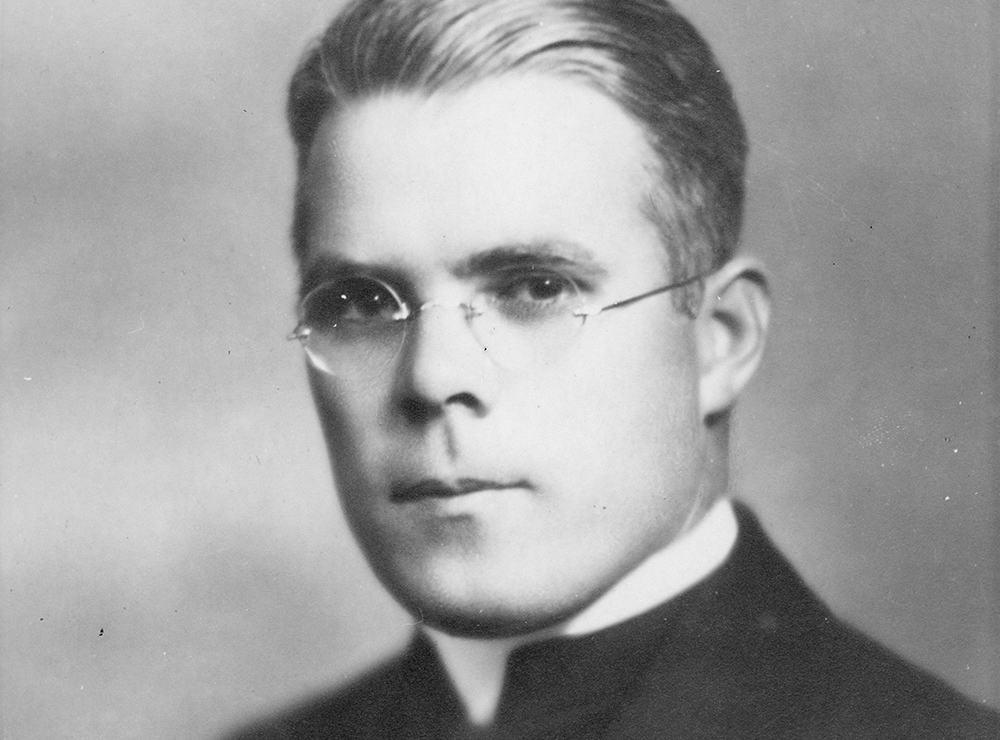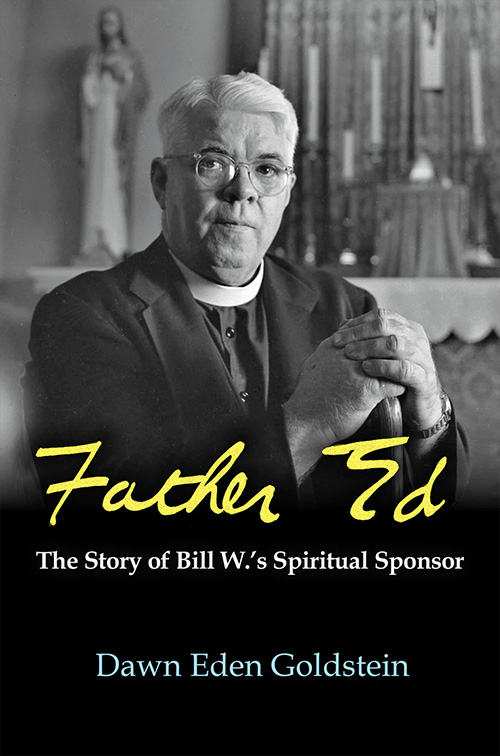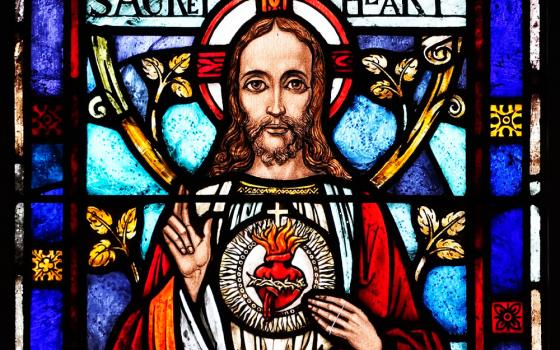
Jesuit Fr. Edward Dowling, circa 1940 (Wikimedia Commons/Maryville University Archives)

Dawn Eden Goldstein's biography* of Jesuit Fr. Edward Dowling, Father Ed, explores the life of the Jesuit priest who was a spiritual sponsor and dear friend to Bill Wilson, co-founder of Alcoholics Anonymous in 1934. The account provides an in-depth look at not only the evolution of AA but also the life of a progressive priest before Vatican II who impacted the lives of many people through his love, faith and compassion.
While the book's details of Father Ed's early life initially seem somewhat bland, Goldstein illustrates their importance later and connects how Father Ed's early professional disappointments were used by God later in his life to help the AA movement and people suffering from alcoholism.
When he was a young Jesuit, Father Ed's supervisors stymied his efforts to make a career out of bringing others inner healing. First, they denied him his wish to do his doctoral research on the Spiritual Exercises, which was crucial to his goal of helping others find freedom in Christ. Then they removed him from advanced graduate studies altogether.
Although Father Ed found meaning in his priestly ministry, he had to give up his dream of bringing spiritual liberation to people on a large scale — until he discovered Alcoholics Anonymous.

The Twelve Steps of Alcoholics Anonymous are displayed in an exhibit in Akron, Ohio. (Wikimedia Commons/Artaxerxes)
After Father Ed was introduced to AA's "Big Book," he became fascinated with the similarities between St. Ignatius's Spiritual Exercises and AA's 12 Step Program as created by Wilson.*
When Father Ed initially met Wilson five years after AA's founding, the fellowship only had about 1,000 members nationwide and Wilson was on the edge of despair after investing all his resources and effort into the program. Goldstein explains that Wilson expressed "feelings of depression, frustration, and even hopelessness" after he and his wife, Lois, had lost their house to a mortgage company and were living as "vagabonds," alternating stays with various AA members.
The Twelve Steps presented Father Ed with the opportunity he had been waiting for: the chance to bring his knowledge of the Spiritual Exercises to bear upon people's most difficult personal problems. Thus, Wilson, both as author of the Twelve Steps and as a personal friend and collaborator, opened the way for Father Ed to fulfill the dreams that his superiors had deferred — and in a manner greater than he could have imagined.
Through Father Ed's founding of a St. Louis AA chapter, his spiritual guidance to Wilson and other AA members and his public promotion of the program, Father Ed became a champion of Alcoholics Anonymous and had a hand in its international success and longevity to this day.
For Father Ed, AA wasn't just helping people to stop drinking, it was a fellowship that introduced people to a relationship with God — whether those people considered themselves Christian or not.
As Goldstein explains, Father Ed believed AA "was genuinely accomplishing the work of Christ in the world by bringing the goal of faith — a closer walk with God — to people who otherwise might never internalize the Christian message."
Father Ed is an uplifting witness of a priest whose mission was to minister to people suffering on the margins of society and share Christ's healing love with them.
Advertisement
Through stories, personal correspondences and writings and speeches, Goldstein portrays a holy man who was committed to helping others through life's storms — whether that meant addressing alcohol addiction with AA, marriage strife with Cana Conferences, or mental health issues with Recovery Inc. — in order to demonstrate God's parental love for his children. To this Jesuit priest, that was more important than stressing Catholic doctrine.
Father Ed's relationship with Wilson exemplifies an important model for all Catholics in relationship with non-Catholics or nonbelievers. While Father Ed was never ashamed of his Catholic faith and openly discussed the church's teachings, saints and theologians when providing spiritual counsel to Wilson, Father Ed also never tried to force or coerce Wilson to become Catholic (even when Wilson came very close to entering the church).
Instead, he respected Wilson's autonomy and appreciated and cherished their friendship even with their differences.
According to 2019 data from the National Institute on Alcohol Abuse and Alcoholism, less than 10 percent of the nearly 15 million Americans with alcohol use disorder receive any treatment, and alcohol is the third-leading preventable cause of death in the United States. Although now there are medications doctors can prescribe to help people with alcohol dependence, this biography* of Dowling underscores the spiritual importance of Alcoholics Anonymous and other programs modelled after the Twelve Steps to help people permanently overcome addiction.
Especially at a time when church membership continues to decline in the United States, 12-step programs are still an opportunity for people to encounter and walk with God.
*This article has been edited to correct the book description and to clarify the priest's introduction to AA's "Big Book."








